Last updated on March 8th, 2023 at 05:31 am
Throughout history, there have been plenty of successful military leaders. However, a select handful stands out from the multitude, famous for their courage, brilliance, and remarkable leadership — those whose innovations in combat helped shape the society we live in today.
From Alexander the Great to Napoleon Bonaparte, these great generals have achieved feats that have changed the course of history and warfare itself and proven that numbers don’t necessarily win wars.
This article will explore the lives, legacies, and leadership styles of some of the greatest generals in history.
Here we go!
Alexander the Great
Alexander the Great (356-323 BCE) was a monarch of the ancient Greek state of Macedon, known throughout history as the man who nearly conquered the world. He was a great strategist and charismatic leader who, with a relatively small army, built a vast empire stretching from modern-day Greece to India.
Alexander the Great was born in Macedonia in 356 BC and ascended to the throne at age 20. Shortly after his succession, he launched his military campaign, invading Persia, the world’s largest empire at the time.
His first victory came almost too easily. Using never before seen tactics that his enemies were unguarded against, he rapidly captured the Persian regions of Syria, Phoenicia, and Egypt. Finally, he defeated the Persian ruler Darius III at the Battle of Gaugamela in 331 BCE after crossing the Euphrates and Tigris rivers.
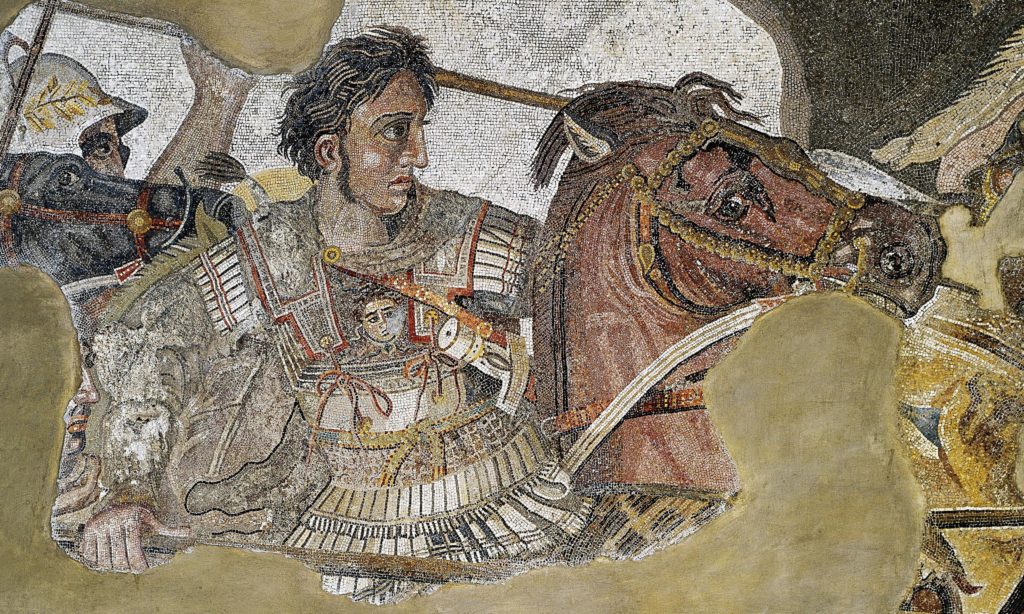
Despite having conquered the most powerful empire in blood and fire, the great general didn’t relent. He carried on his expedition to conquer Mesopotamia, Armenia, and the Indus Valley. He eventually reached the edge of the Indian subcontinent, where he fought several battles against the Indian king Porus.
During his conquests, the youthful conqueror was famed for his daring and aggressive combat style, and he was regarded as a master of flanking maneuvers and surprise attacks. He invented siege warfare tactics and pioneered combining land and naval forces.
His understanding of logistics enabled him to adequately supply and move his troops, ensuring that he and his men could fight at full strength even when they were far from home.
Alexander’s troops eventually became exhausted after years of military engagements. His charisma could no longer motivate his men to fight longer. By then, Alexander had conquered the majority of the known world of his day with his intellect and inventive approach to combat. This achievement has yet to be replicated even today.
Alexander died on his way back to Babylon in 323 BC at 33 after a brief illness. Despite his short life, Alexander left a legacy that molded much of the ancient world’s cultural landscape, and his influence is still felt today, inspiring generations of leaders and thinkers.
Julius Caesar
Julius Caesar was a renowned military leader best known for his military campaigns in the Gallic Wars and the subsequent civil war that eventually led to his rise to power.
Swiftness and calculated efficiency were the trademarks of Caesar’s military campaigns. He is said to have ingeniously incorporated a combination of the Roman legion system, strategy, and tactics into his style, resulting in a newer, better, and more efficient combat methodology that was the most devastating in its time.
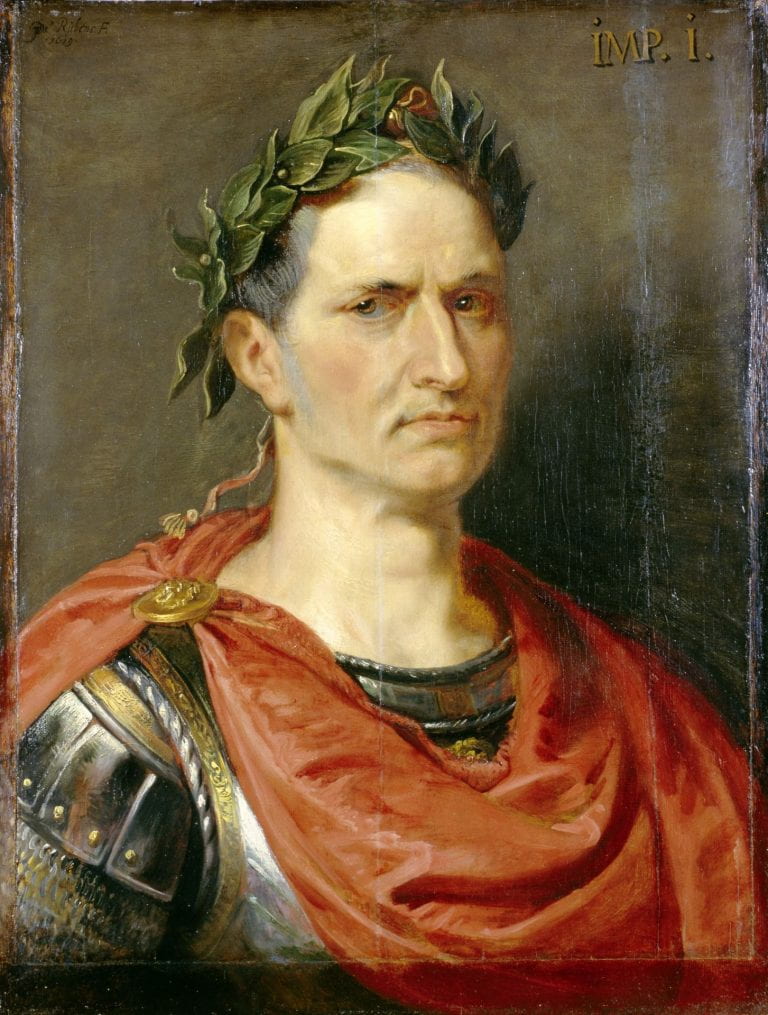
Caesar’s military career began in 88 BC, with the military campaign of consuls Gaius Marius and Lucius Cornelius Sulla, which resulted in a Marian victory. In 85 BC, the young warrior was made a military tribune. And in 83 BC, he became a commander who commanded a sizable legion.
Of all Caesar’s military campaigns, his Gaul conquests are perhaps his most famous and illustrious, as he managed to conquer the entirety of Gaul in just eight years. His tactics included surprise attacks, swift marches, and mobile artillery. In the civil war against Pompey, where he crossed the Rubicon, Caesar employed various tactics, including marches, ambushes, and psychological warfare.
In the ancient world, he was infamous for his ability to win wars even when outnumbered. The famous saying in literature and pop — Veni, vidi, vici (“I came, I saw, I conquered”) — originated from the infamy of the Roman general’s tactical prowess. It was also his armada’s motto.
In addition to his military strategies, Caesar was known for motivating and inspiring his troops. He was a great orator who could rally his troops with stirring speeches, encouraging them to fight for him even in the grimmest circumstances.
Overall, Julius Caesar was a remarkable military leader who was able to conquer vast territories with a combination of strategy, tactics, and motivation. He was a master of offensive and defensive warfare and could win battles even when facing overwhelming odds. Caesar’s military campaigns are still studied in military schools today, and his legacy is one of the most enduring in military history.
Hannibal
If you’re an ancient Roman reborn, chances are you’ll hate the name Hannibal with passion. Dubbed Rome’s “public enemy number one,” Hannibal was a great Carthaginian general who stormed ancient Rome with his innovative combat philosophies.
Born in 247 BC in Carthage, Hanibal was trained in warfare by his father, Hamilcar Barca, from a young age. His first major campaign was in Spain in 218 BC, where he achieved numerous victories against the Romans.
After his successes in Spain, Hannibal, in an audacious move, marched his troops to invade Italy and was surprisingly largely successful in conquering the ancient land. He fought three majorly decisive battles against the Romans at Trebia, Lake Trasimene, and Cannae in his campaign. Hannibal’s forces were significantly outnumbered at each battle, but he won three.
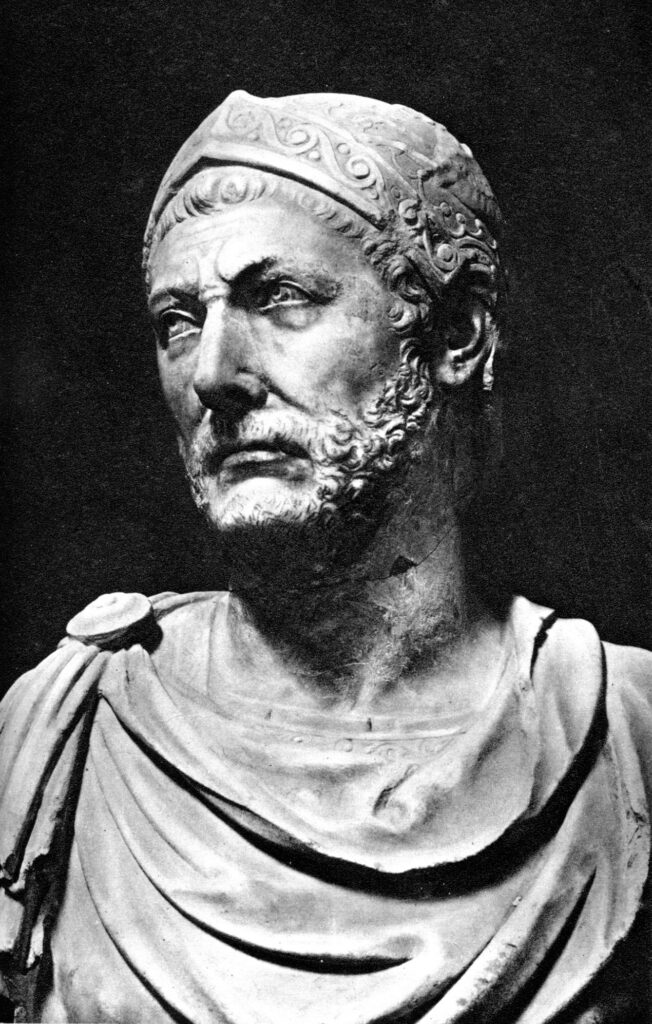
Hannibal’s most famous campaign was his march across the Alps with his army in 218 BC, where he ingeniously led a force of approximately 50,000 soldiers and 37 elephants across the mountains. With the element of surprise and his non-traditional elephant Cavalry, he could lay waste to the Roman forces at minimum cost.
The absolute brilliance of the Carthaginian general shone through at the famous Battle of Cannae in 216 BC when he destroyed the Roman legions and killed an estimated 70,000 Roman men. The fight is frequently considered one of the bloodiest in ancient history.
Hannibal’s tactics were revolutionary, and his military genius has been studied ever since. Through his rampage in ancient Rome and Italy, he was infamous for his ability to use the terrain and weather to his advantage and his innovative use of tactics such as feigned retreats and ambushes.
Following his victory at Cannae, Hannibal continued to harry the Romans for another fourteen years before being defeated by Scipio Africanus at the Battle of Zama in 202 BC. Despite his eventual defeat, Hannibal’s military exploits exemplified tactical genius and substantiated audacity.
Napoleon Bonaparte
If we’re talking about whose conquests are most dissected and studied by modern-day military experts and tacticians, then it’d be Napoleon — for both good and bad reasons.
His accomplishments in his lifetime were more than enough to earn him a lasting place in history as one the greatest generals of the time. Moreover, his genius for warfare was so overwhelming that his combat philosophies style changed the course of history.
Wars fought following the Napoleonic Wars had to adhere to an unwritten norm established by his accomplishments. The man single-handedly altered the way wars were fought since his time.
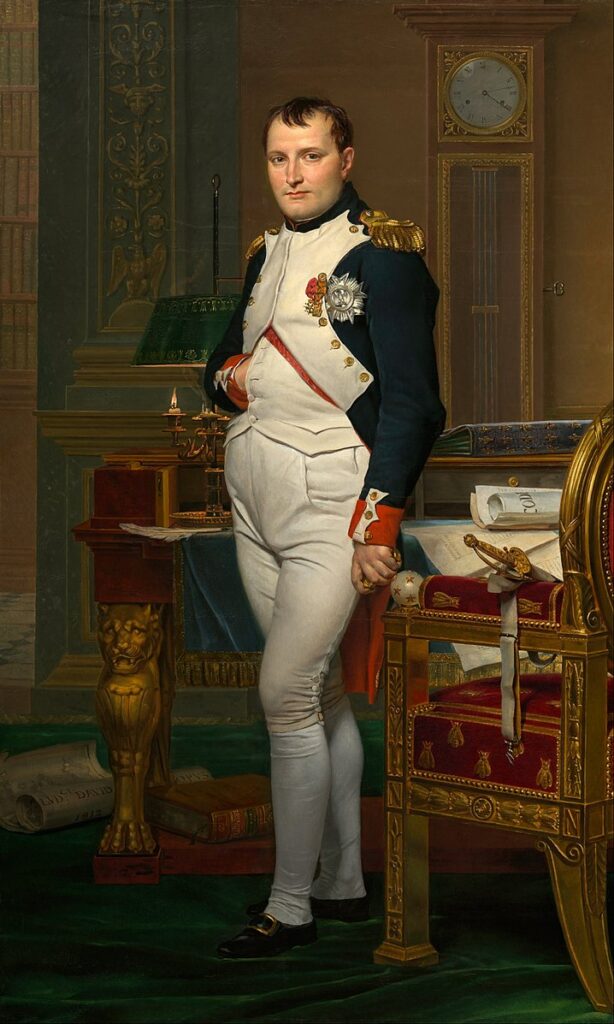
Napoleon’s rise to power began with his success at the Battle of Lodi in 1796, where he commanded a small French force to victory against a larger Austrian army. This victory earned him the recognition of the French government and set him on a path to military greatness.
In 1803, he declared himself Emperor of France. He launched a series of ambitious military campaigns known as the Napoleonic Wars, during which he achieved numerous victories, including the sweeping triumph at the Battle of Austerlitz in 1805 and the decisive win at the Battle of Wagram in 1809.
Napoleon conquered much of continental Europe and established the first French Empire. He famously adopted a “scorched earth” policy in some of his campaigns, effectively denying resources to his enemies and ensuring his success. His most famous victory was at the Battle of Austerlitz in 1805 when he decisively defeated an Austrian-Russian joint force of 95,000 men with only 68,000 men.
Napoleon’s career was not without defeats, however. In 1812, his invasion of Russia ended in disaster. His eventual defeat in 1815 at the Battle of Waterloo marked the beginning of his final exile.
Despite his defeat, Napoleon’s legacy lives on. He was an innovator in warfare and a masterful military strategist. His contributions to the art of warfare are still studied today, and he is remembered as one of the greatest generals in history.
Genghis Khan
Throughout history, there are countless records of ambitious warlords who wage wars to fuel their ambitions and lofty goals, but few were as successful as Genghis Khan can, and even fewer — maybe none— were as ruthless as he was.
Born Temujin in 1162, the son of a Mongol chieftain, Ghenghis was an oddball combination of military brilliance and unemphatic coldness.
The Mongol warlord was a skilled and effective leader who used various military tactics, diplomacy, and psychological warfare to achieve his goals. He was relentless in his pursuit of conquest, and he would often pursue his enemies for months or even years until they were defeated or surrendered.
He rose to power by uniting many of the nomadic tribes of Northeast Asia and creating a powerful military force. He brought all Mongol tribes together and created a powerful and unified nation.
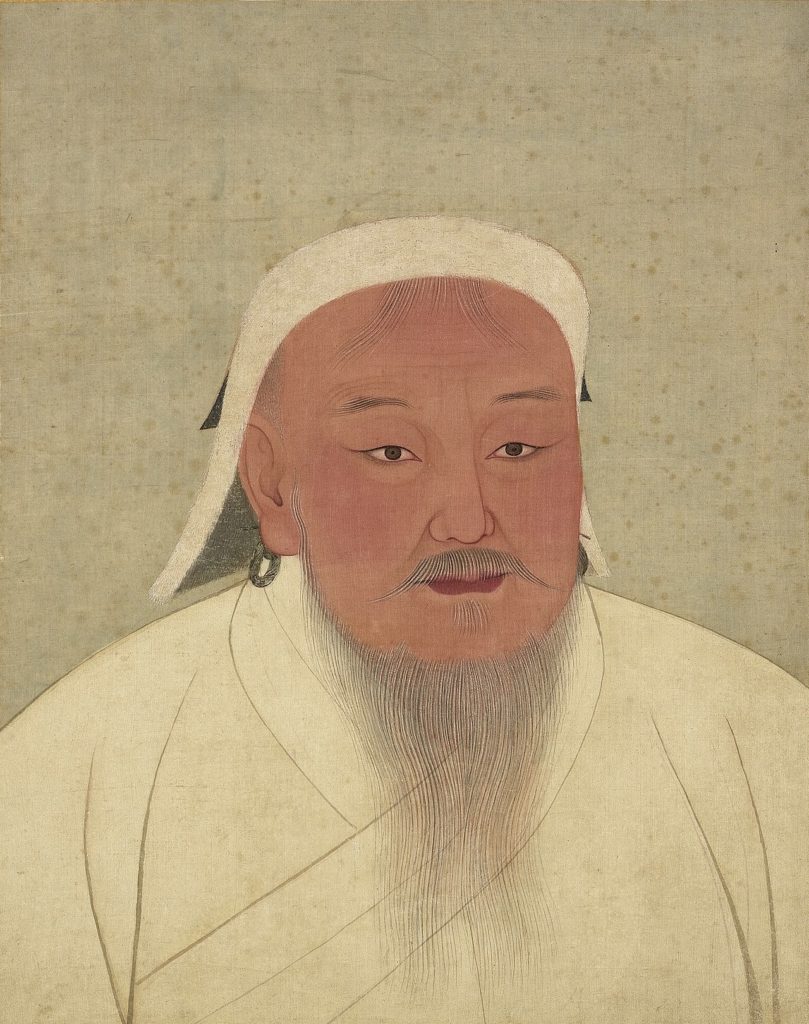
The unification of his country, which could count as some other iconic figure’s ultimate achievement, was merely the opening chapter of his story.
Using the strength of his united Mongolian power, he conquered Asia and Europe, extending his dominion from Central Asia to the Middle East and Eastern Europe, creating one of history’s largest empires.
Through his campaigns, his insight as a strategist overwhelmed his enemies every step of the way.
The terror he instilled in his enemies ensured he had already won half the war before deploying the first soldier. He understood the importance of psychological warfare and perfectly exploited this aspect of combat to his advantage.
Genghis Khan was also known for his strict discipline and insistence on loyalty and obedience from his followers. He would often punish those who disobeyed him, sometimes by ordering the execution of their entire family. He also enforced strict rules of conduct, such as forbidding the looting of conquered cities.
Genghis Khan’s legacy has endured for centuries. He is remembered as one of the most successful conquerors in history, and his name is still associated with ruthlessness.
Khalid ibn al-Walid
Khalid ibn al-Walid was a military commander who lived in the 7th century. He is considered one of the greatest military generals in history, with an almost unparalleled record of victories.
Born in Mecca in the year 585, Khalid was the son of al-Walid ibn al-Mughira, a prominent member of the Banu Makhzum, a powerful clan of the Quraysh tribe. He grew up in a time of great political and social upheaval in Arabia, as the various tribes and clans of the region were locked in a series of conflicts and power struggles.
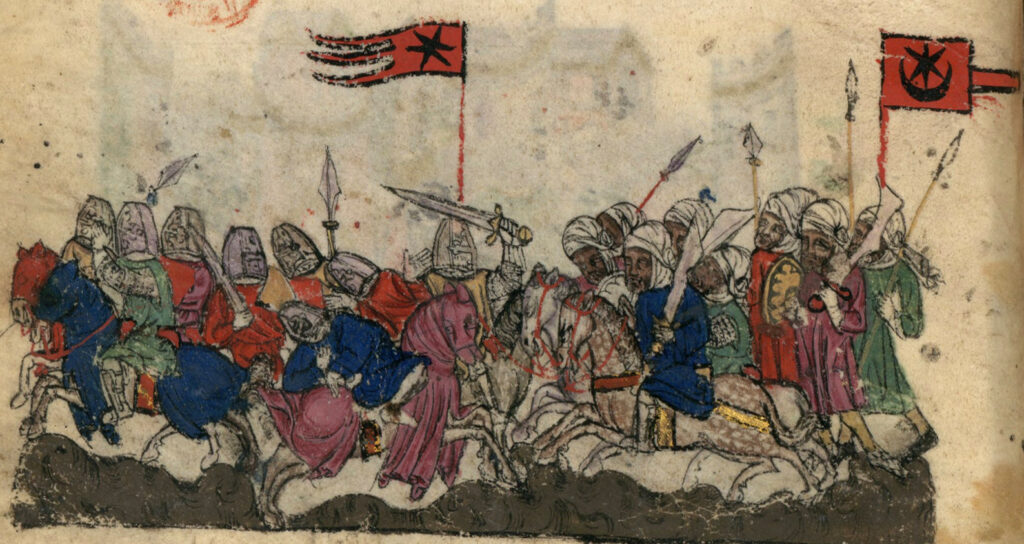
Despite his youth, Khalid quickly emerged as a talented military commander and played a key role in many battles and skirmishes during this time. He was known for his tactical genius and his ability to adapt to changing circumstances on the battlefield, and he was able to inspire great loyalty and devotion in his troops.
One of the key moments in Khalid’s career came in 624 when he fought in the Battle of Badr against Muhammad’s Muslim forces. Although Muslims ultimately defeated the Meccans, all recognized Khalid’s tactical brilliance and bravery. This turning point also helped lead him to convert to Islam.
Throughout his career, Khalid participated in many other battles and campaigns and was eventually responsible for many early Muslim conquests.
Georgy Zhukov
Georgy Zhukov was a Soviet military commander who played a key role in the Allied victory in World War II. He is widely considered one of the greatest military generals in history, and his tactical brilliance and leadership skills were instrumental in the defeat of Germany.
Zhukov was born in 1896 in Russia and began his military career during World War I, where he served as a junior officer. After the war, he continued to rise through the ranks of the Soviet military, and by the time World War II began, he was a well-respected commander.
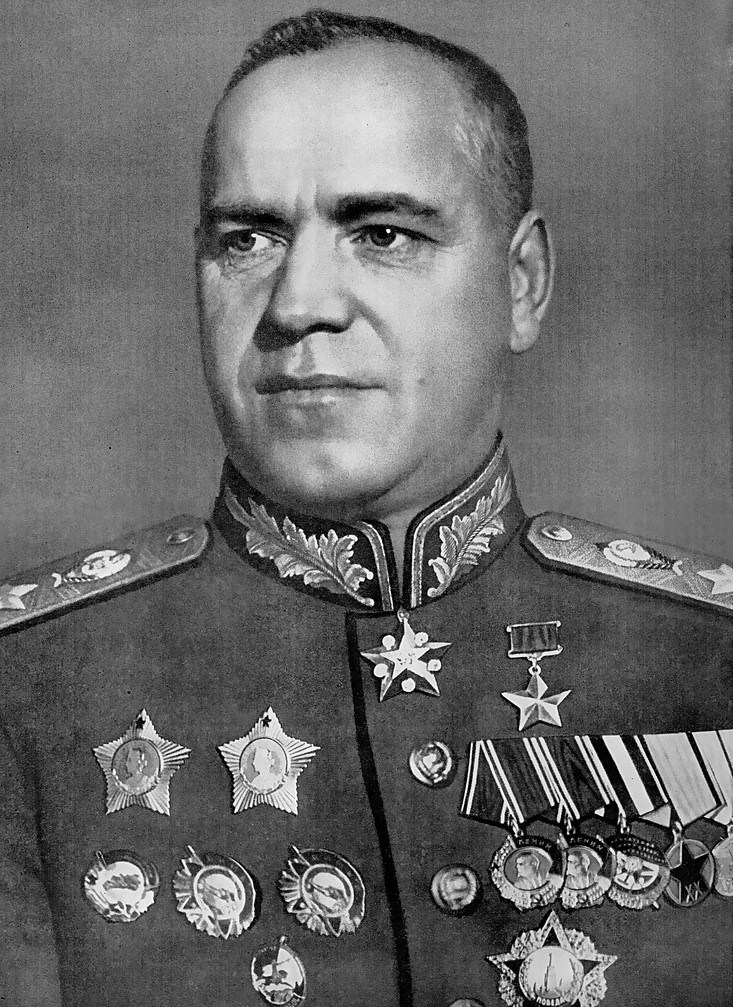
During the war, Zhukov played a crucial role in several significant battles, including the Battle of Stalingrad and the Battle of Kursk. His tactical genius and leadership skills were instrumental in these victories, and he gained overall command of the Soviet forces on the Eastern Front.
After the war, Zhukov remained a prominent figure in the Soviet military, eventually becoming Marshal of the Soviet Union.


I thought surely Patton, and Eisenhower, would have been included!
Genghis Khan was an administrator, a King, and a shrewd leader. He relied on Sukotai as his General and principal military strategist. Sukotai won 65 major battles for Genghis Khan and later Ogedei Khan. No other General enjoys such distinction
Miranda Leer: you appear to have neglected to include General George S. Patton, Jr., General Douglas MacArthur, and any number of WWII German generals, such as Gen. Erich von Manstein and Gen. Erwin Rommel. But, to your dubious credit, you included the Russian. Overall, an average effort that needs to be reworked.
Very educative and encouraging.
You forgot Yi Sun-sin, Korean Admiral-
Don José de San Martín needs to be here. He crossed the Andes with an army to liberate Chile and then all of South America. His journey was way dificult than Hannibals or Napoleon’s
These great people are either kings or people who have won only in their respective continents. But none of them have the success of fighting internationally like Subutai.